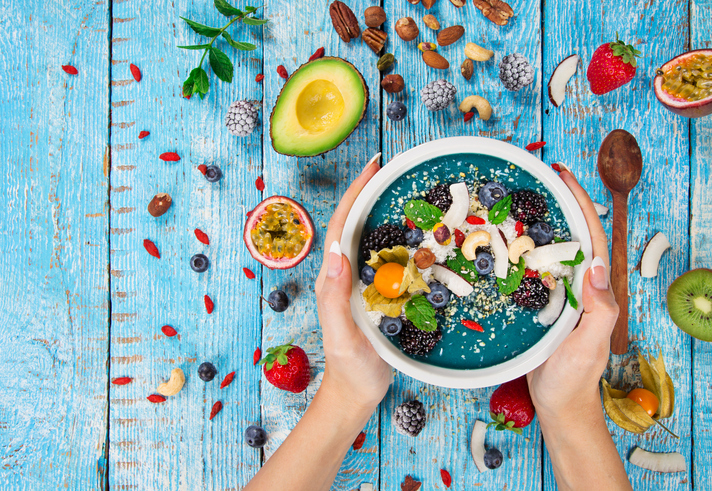Back-To-School Nutrition Tips for Kids

For me, fall is bittersweet. I love getting into new routines with work, back-to-school and kids activities, along with enjoying the beautiful colours, but I truly love being with my kids during the summer and soaking up their laughter, smiles and curiosity.
Teaching my kids about nutrition, and how their bodies can respond positively or negatively depending on what they consume, is so important to me. I love their vitality I get to enjoy when their bodies are well supported nutritionally with food.
Whole food provides our bodies with the fuel they need to nourish, grow, develop, think and repair. It is true healing power.
As we prepare to get our kids ready for school by ensuring they have new school clothes, supplies and haircuts, in the rush we may neglect the most vital part of going back to school – nutrition.
The following are 5 back-to-school nutrition tips that helped my kids improve their health, reduce the fall colds and flus as well as giving them sustained energy throughout the day. I hope that your kids can feel the benefits as well.
5 Back To School Nutrition Tips for Kids
1. Ensure your kids drink plenty of water

Image: iStock
Dehydration can lead to a system overload. Our thinking becomes cloudy, energy diminishes, cell activity becomes sluggish and elimination becomes stagnant. Sending your kids to school with 1-2 water bottles daily is one of the easiest and healthiest options. Adding freshly squeezed lemon and lime can add flavour and aid in digestion.
More Resources
2. Give your children probiotic foods

Image: Alison Marras on Unsplash
80% of our immune system is located in our gut; the balance of good bacteria versus bad bacteria is tipped so quickly with excess sugar and highly processed foods. Adding in probiotics to your child’s daily routine through fermented foods or a probiotic supplement can have positive effects on mood, sleep and a healthy functioning immune system.
Fermented foods include:
- dairy-free yogurt or kefir
- picked vegetables
- miso
- cultured dairy-free cheese
- tempeh
- apple cider vinegar
Fermented Recipes to Try
Ready to start fermenting at home? Try this self-paced Fundamentals of Fermentation course!
3. Nourish your child’s brain with fresh fish or fish oils

Each and every cell of our body is surrounded by a layer of fat, so it makes sense to ensure we consume an ample supply of good fats daily. Adding them to your child’s day can positively benefit mood, attention, focus, metabolism, energy and the immune system.
Fish or fish oil in particular are rich in the omega-3 fatty acid DHA, which is essential for brain and eye development. While you can find omega-3s in plant-based sources (avocados, chia, hemp, nuts and seeds, etc.), evidence indicates that we are not able to convert them with high efficiency into EPA and DHA. However, if you and your children are vegan or vegetarian, any fat is better than no fat and alternative sources are still beneficial for everyone.
More Resources
- How to Choose Healthy Cooking Oils
- Feed Your Kids These Foods to Improve Focus and Attention
- How to Eat More Fat and Feel Amazing (Podcast)
4. Boost your kids’ fibre consumption

Simply put, fibre helps to nourish our good bacteria, which in turn helps us absorb food more efficiently, maintain healthy blood sugar levels, produce vitamins and ensure our “plumbing” is functioning optimally. Kids may not realize that eliminating less than 1-2 times per day equates to constipation.
Fibre in the form of colourful fruits and vibrant vegetables, along with chia, flax or hemp hearts are ideal and will definitely have a positive effect on the body.
And, if you’re looking for recipes that kids will actually eat, check out the following resources:
- 25 Best Kid-Friendly Recipes
- 25 Best Nut-Free Lunch Ideas
- 21 Healthy School Lunch Ideas That Aren’t Sandwiches
- 20 Best Smoothie Recipes
- 20 Best Dip and Hummus Recipes
- 5 Ways to Help Your Children Eat Their School Lunch
- Stress-Free Ways to Get More Fruits and Vegetables into Your Diet
- 3 Tips for a Healthy Lunchbox
5. Make sure children get enough sleep
Growing children need sleep…although they will beg to differ with you! It is vital to their mood, behaviour and attention. Children aged 6-13 need about 9-11 hours of sleep a night. To help your children get a good night’s sleep:
- help instill a regular bedtime routine
- ensure the TV, computer, video games and cell phone are out of your child’s bedroom
- make their room as dark as possible
Essential oils, such as lavender, can help to release tension and allow for relaxation as well.
More Resources
Using these back-to-school nutrition tips, you can set the tone for the school year and support your child’s health, happiness and success. Wishing all kids a wonderful year back to school!
Header Image: iStock/monkeybusinessimages
Free Resource Library
Enjoy more than 40 downloadable guides, recipes, and resources.























